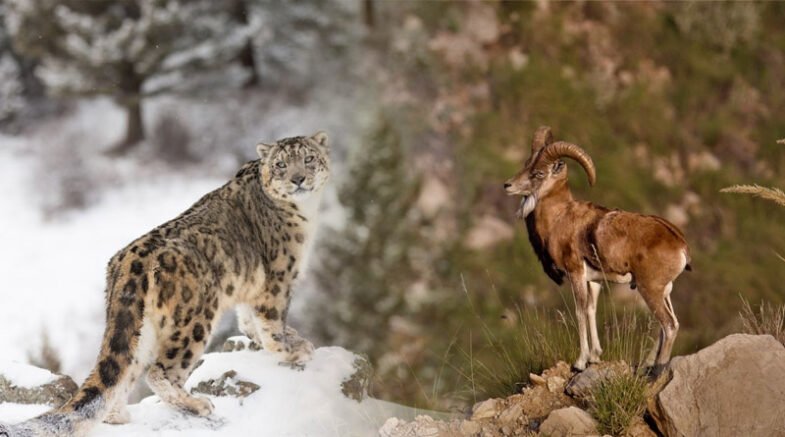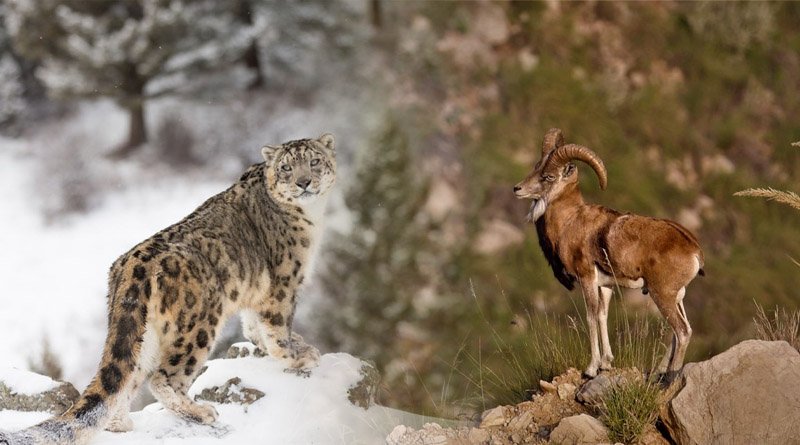Haleem claimed that the entire merged area is covered in forest and has a rich biodiversity, both of which require special consideration and protective measures.

The Khyber Pakhtunkhwa Wildlife Department is concentrating on public education as it is very difficult to implement the relevant laws to ensure the protection of wild fauna in biodiversity-rich Newly Merged Districts.
According to Abdul Haleem, Divisional Forest Office (DFO) Wildlife Khyber District, “The policy of imposing restrictions and charging fines over violations cannot achieve the desired goals of preserving wild fauna in a region that is full of biodiversity but remained outside the bounds of Wildlife Protection Laws for about 60 years.”
He stated in a media interview that the only way to effectively win over the public for biodiversity conservation in such areas is to simply inform people of the value of flora and fauna. When asked about the killing of four leopards in the Khyber district’s mountainous region in a matter of a few months,
Abdul Haleem responded that this also indicated that there were plenty of big cats in the area. According to Haleem, the leopard’s poisoning and shooting death were a response to local livestock theft. Through the assistance of the local police, the Wildlife Department quickly apprehended the person responsible for the murder of two leopard cubs in Tirah.
But soon after the arrest, a crowd of locals gathered outside the police station and forced the detainee’s release, according to Haleem.
The Wildlife Department is concentrating, through the placement of billboards at various locations, on the need for time and capacity building to increase regional residents’ adherence to laws, he continued.
In a similar vein, Haleem went on to say that in addition to the formation of Village Conservation Committees (VCC), which maintain contact with locals and educate them about the value of biodiversity and wildlife, social media is also used for raising awareness.
According to him, a lack of law and order makes it difficult for the Wildlife Department to access various biodiversity hot spots that are tucked away in remote, hilly terrain close to the Pakistan-Afghanistan border.
He claimed there were solid indications of the presence of various wild species in the Khyber District, including the khaleej and monal pheasant, as well as the common leopard, markhor, black bear, musk deer, and uryal.
In the Rajgal Alpine Range near Spinghar, Afghanistan, there is habitat for the rare snow leopard, and there is a good chance that this area.
Haleem also believed that since snow leopards and monal pheasants share a similar habitat, there is a chance that they may coexist in a given area. He reasoned that since the Khyber District’s alpine region is mostly covered in snow and is extremely chilly, it must be home to snow leopards if a scientific survey is being carried out there.
Haleem claimed that the entire merged area is covered in forest and has a rich biodiversity, both of which require special consideration and protective measures.
A large number of birds would pass through the area and stop at various locations during the upcoming migration season.
He suggested that the only way to ensure the protection of these migrant birds is to involve local communities and provide them with incentives.
He also acknowledged instances of illegal hunting and poaching of endangered wild species in the area, saying the Wildlife Department is making every effort but is unable to maintain control over such a vast area due to a lack of staff.
Haleem claimed that the Wildlife Department only has two employees working in the entire Dara Adam Khel region, where a leopard was recently killed. While only four employees are in charge of protecting wildlife in the Khyber District’s Hassan Khel Mountains.
He claimed that the KP Wildlife Department is carrying out its duties with the necessary devotion and hard work and that it has conducted several raids and fined offenders.
Although the department has established checkpoints in areas like Torkhem, Thakt-e-Baig, Dara Adam Khel, and other places in coordination with the Forest Department, Haleem emphasised that much more work and funding are still required to protect wild animals and forests in the newly merged districts’ biodiversity-rich areas.
